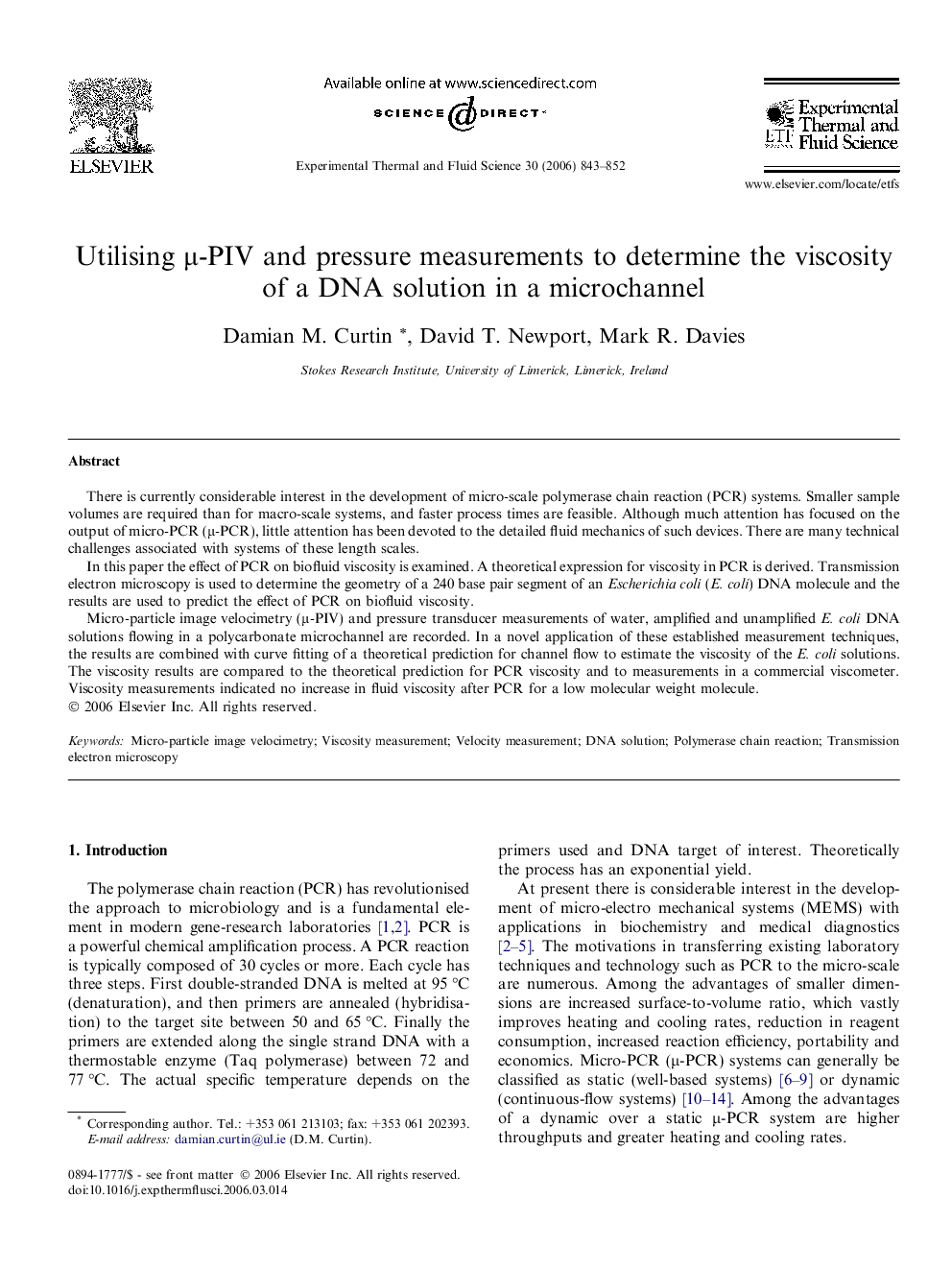| Article ID | Journal | Published Year | Pages | File Type |
|---|---|---|---|---|
| 652795 | Experimental Thermal and Fluid Science | 2006 | 10 Pages |
There is currently considerable interest in the development of micro-scale polymerase chain reaction (PCR) systems. Smaller sample volumes are required than for macro-scale systems, and faster process times are feasible. Although much attention has focused on the output of micro-PCR (μ-PCR), little attention has been devoted to the detailed fluid mechanics of such devices. There are many technical challenges associated with systems of these length scales.In this paper the effect of PCR on biofluid viscosity is examined. A theoretical expression for viscosity in PCR is derived. Transmission electron microscopy is used to determine the geometry of a 240 base pair segment of an Escherichia coli (E. coli) DNA molecule and the results are used to predict the effect of PCR on biofluid viscosity.Micro-particle image velocimetry (μ-PIV) and pressure transducer measurements of water, amplified and unamplified E. coli DNA solutions flowing in a polycarbonate microchannel are recorded. In a novel application of these established measurement techniques, the results are combined with curve fitting of a theoretical prediction for channel flow to estimate the viscosity of the E. coli solutions. The viscosity results are compared to the theoretical prediction for PCR viscosity and to measurements in a commercial viscometer. Viscosity measurements indicated no increase in fluid viscosity after PCR for a low molecular weight molecule.
